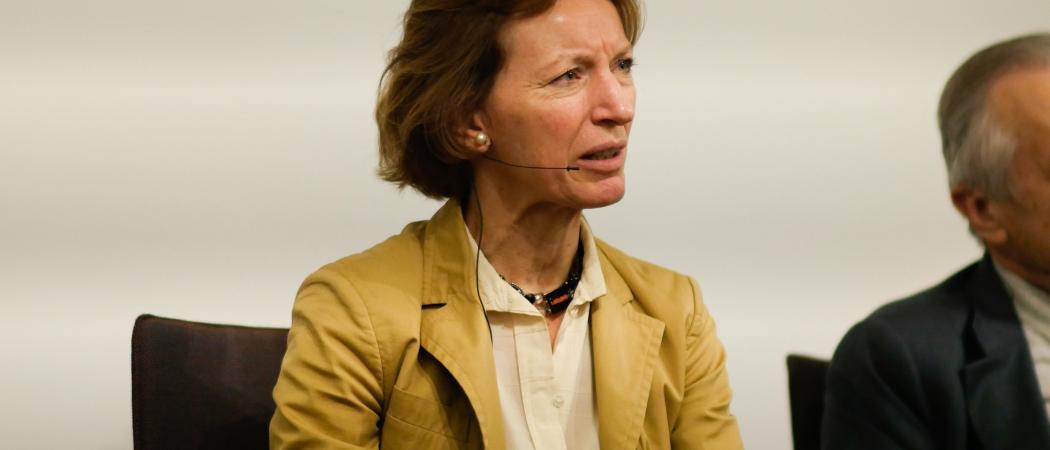Maria Leptin will not join until 1 November due to clashing commitments in her calendar, but research lobbies are sanguine about the delay

Maria Leptin, developmental biologist and immunologist, will become European Research Council president on 1 November. Photo: Science|Business
Official engagements this October have delayed Maria Leptin’s move to become president of the European Research Council, by one month.
Leptin will now step into the post on 1 November, leaving ERC without a president for two months. Until then, ERC’s vice presidents will cover for her.
Leptin’s move from the post of director of the European Molecular Biology Organisation (EMBO) to replace French mathematician Jean-Pierre Bourguignon as the head of ERC, was announced in June, following a year-long search. Bourguignon bowed out at the end of July, after stepping in as interim president when previous incumbent Mauro Ferrari left at short notice.
Leptin confirmed previous professional commitments prevented her from taking office sooner and her four-year contract is currently being prepared for 1 November.
“The ERC clearly needs a president in post, but sometimes these delays are unavoidable. We are all the more looking forward to Maria Leptin’s start – we need her leadership,” said Jan Palmowski, secretary general of the Guild of European Research-Intensive Universities.
Lidia Borrell-Damián, secretary general of Science Europe, which represents research funding agencies, said the timing of the two-month transition was fortunate, given ERC calls for next year have already been decided. “I want to think there is nothing to be concerned about,” she told Science|Business. “I think Jean-Pierre Bourguignon would wrap up as much as he can and Maria Leptin will take over in a very strong way. I trust them, that’s what it boils down to.”
A European University Association spokeswoman said there are no signs universities should be concerned about the delay. “We are looking forward to building a long term, stable relationship with the new president and her team. If it takes one more month for the person to be able to join her position, it will not affect our goal,” she said.
Leptin is due to join ERC at the start of a new €16 billion seven-year programme, which will continue the agency’s mission to support the best scientists at different stages of their careers, from early research to leaders in their fields.
The new president has dedicated her career to basic research in molecular biology and has a long track record in science administration, having run EMBO since 2010.
As the fifth president of the scientific council, Leptin has said she hopes to engage under-represented countries and communities, helping them get better access to grants.
Science Europe hopes to work with the president on issues including open science, research ethics and integrity, researcher mobility, preservation of academic freedom and the creation of the EU’s single market for research, the European Research Area (ERA). “The ERC should be strongly linked with the ERA. It should be one of the programmes that give cohesion to the ERA,” said Borrell-Damián.
The delay in Leptin’s appointment extends an awkward interregnum for ERC, which began when her predecessor Ferrari left under a cloud after only three months in office in 2020. The Italian nanoscientist got into a heated dispute with ERC’s scientific council at the start of the COVID-19 crisis, when he started lobbying for a change the ERC’s model of funding excellent basic science regardless of discipline, and calling for ERC to fund applied research relevant to dealing with the pandemic.
The scientific council argued the ERC’s brief is to support research based on scientific quality, not to single out particular fields, or to set specific research objectives. Ferrari resigned as a result, and Bourguignon, who had preceded him as president of the ERC, returned to the post.





 A unique international forum for public research organisations and companies to connect their external engagement with strategic interests around their R&D system.
A unique international forum for public research organisations and companies to connect their external engagement with strategic interests around their R&D system.